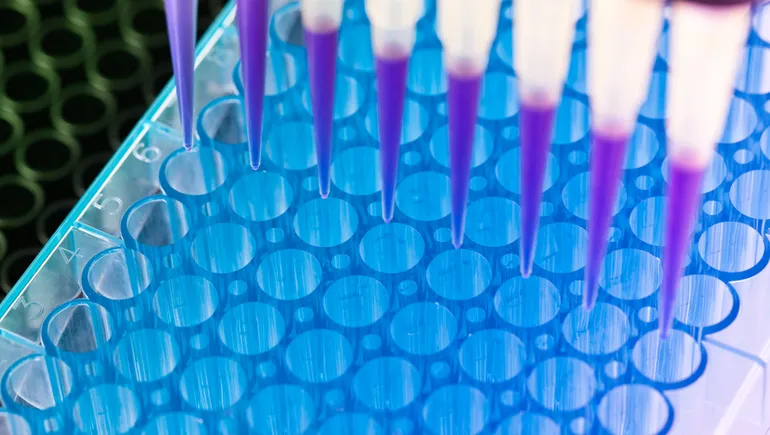An FDA-approved ‘liquid biopsy’ could be on the horizon

Colorectal cancer screening works. Yet, not everyone who needs screening gets it.
“The biggest epidemic, the biggest challenge we have for colorectal cancer is the unscreened population,” said Helmy Eltoukhy, co-CEO and chairman of Guardant Health, a California-based precision oncology company. “There are 50,000 Americans that die every year from colorectal cancer, and 76% of those deaths come from the unscreened population.”
It’s an issue that recently grabbed headlines when new research showed colorectal cancer deaths are rising among younger patients, and that colorectal cancer is now the leading cause of cancer death in men and the second-leading in women younger than 50.Although screening is effective, colorectal screening methods, like colonoscopies and stool sample testing, don’t always have the best compliance. According to the CDC, a statewide average of 69.4% of U.S. adults aged 50 to 75 weren’t up to date with colorectal cancer screening in 2020.
“If we had a blood-based methodology to screen those unscreened individuals, it would probably, from our estimate, be one of the most significant advances in cancer mortality, at least in the last decade,” Eltoukhy said.
With that goal in mind, Guardant Health created Shield, a blood-based test that can detect colorectal cancer with 83% sensitivity through tumor DNA, according to a 20,000-patient study. It’s already on the market with a CLIA certification, but the company is also seeking FDA approval and is in the final stages of FDA review, Eltoukhy said.
“We expect that FDA decision, and hopefully approval, to come sometime this year, and if it does, it would be the first FDA-approved, Medicare-reimbursed sort of ‘liquid biopsy’ for screening ever,” Eltoukhy said.
The impact for pharma research
Guardant has two other FDA-approved, Medicare-reimbursed blood-based cancer tests already on the market: Guardant Reveal, a companion diagnostic which detects residual disease and recurrence in current early-stage colorectal, breast and lung cancer patients, and Guardant360, which can help doctors match advanced cancer patients with the right treatments and monitor their response.
Biotech companies also use Guardant360 for finding clinical trial candidates and validating drugs.
“Data rich blood tests, which have never really been part of the medical space, will start coming to bear with colorectal.”

Helmy Eltoukhy
Co-CEO, chairman, Guardant Health
“If you could remove the friction in terms of finding patients because you can do things with blood rather than biopsies [or] other more involved medical procedures, it really reduces the time to enrollment,” Eltoukhy said. “We’ve seen a lot of success stories as a result.”
In addition, Eltoukhy said the drug validation capabilities have been useful for companies reevaluating their pipelines to ensure drug candidates have large enough indications in the face of Medicare price negotiations down the road.
“The fact that they’re thinking about the larger indications means they often have to measure twice and cut once,” he said.
Guardant’s Shield is initially indicated for colorectal cancer, but that’s a “Trojan horse strategy” to test for other cancers, too.
“The same test will be able to do dozens of other cancers. We have a 10,000-plus patient study that is enrolling very nicely in lung cancer,” Eltoukhy said. “Data rich blood tests, which have never really been part of the medical space, will start coming to bear with colorectal. But I think from there, all that data that’s unlocked will be so useful for many other applications over time.”
Pharma companies are also exploring ways to use the technology in other disease areas, such as inflammatory disease, rheumatoid arthritis and cardiovascular disease. He expects some of that work to be announced later this year.
“This is … the first breakthrough that is leading to what we all envisioned personalized medicine and precision medicine to enable,” Eltoukhy said. “We’re finally seeing that promise.”
Source link
#FDAapproved #liquid #biopsy #horizon